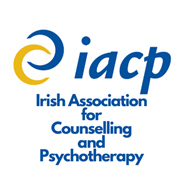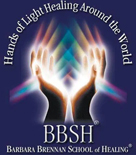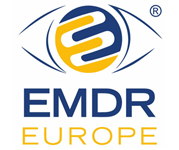 Writing about traumatic, stressful or emotional events has been found to result in improvements in both physical and psychological health. Sometimes referred to as “Journaling” or “expressive writing”, expressing your feelings and thoughts on paper can be a very useful tool for positive mental, emotional and perhaps more surprisingly, physical health.
Writing about traumatic, stressful or emotional events has been found to result in improvements in both physical and psychological health. Sometimes referred to as “Journaling” or “expressive writing”, expressing your feelings and thoughts on paper can be a very useful tool for positive mental, emotional and perhaps more surprisingly, physical health.
Over the last 20 years several research studies have demonstrated the benefits of writing about traumatic, stressful or emotional events. In 1986, Pennebaker & Beall, carried out a study where one group of college students were asked to write for 15 minutes on 4 consecutive days about the most traumatic or upsetting experiences of their entire lives while a control group was asked to write for the same time periods, in a factual and non emotional way about superficial topics such as a particular room or their plans for the day. Participants who wrote about their deepest thoughts and feelings reported significant benefits in both objectively assessed and self-reported physical health 4 months later.
What is Journaling / Expressive Writing
Journaling / Expressive Writing is capturing on paper a stream of consciousness i.e. writing down anything that comes in to your mind. In particular write about what you feel and think. Really let go. Do not censure or hold back. Get whatever comes to mind down on paper.
This writing is just for you. You never have to show it to anyone. If you are afraid someone will find it you could burn it or rip it up afterwards. You don’t even need to read back on it unless you want to. It is the process of writing about your experience that is important, not reading back to understand what you’ve said. In fact it is advised that you do not read back on it until the following day at the earliest.
Don’t worry about spelling, grammar or handwriting and don’t worry about whether it is true or not or whether it is fair or not. It could seem like the biggest load of drivel but it could be the most important thing you’ve ever written. Don’t judge what comes up. Just write it down!
Journaling or Expressive Writing can be used in several ways. Here are 3 way that I often suggest to clients in my counselling and psychotherapy practise:
- Writing to Get Something Off Your Chest
If something or someone is bothering you or if you are struggling to deal with a stressful, emotional or traumatic event – write about it. You can set a clock for 15 minutes or just write until you feel you have nothing left to say. This writing is just for you. It doesn’t even need to make sense. Just write whatever comes to mind. Do this for 4 consecutive days.
2. Write a letter to someone you are angry or upset with
If you are experiencing difficult feelings about someone then write them a letter. This letter is just for you. You will not post or give it to them. Put everything your really want to say to them in the letter. Let it all out. Don’t hold back or worry about politeness, manners, fairness, rightness or wrongness. Say exactly what you’d like to say and keep going until you feel you’ve said it all.
3. Morning Pages
Julia Cameron’s book “The Artists Way” which is about uncovering and recovering creativity suggests writing three pages of a handwritten, stream of consciousness, first thing in the morning. There is no wrong way to do Morning Pages. They are about anything and everything that crosses your mind and they are for your eyes only. According to Cameron “Morning Pages provoke, clarify, comfort, cajole, prioritize and synchronize the day at hand”. She warns not to over-think Morning Pages – just put three pages of anything on the page…and then do three more pages tomorrow, the day after, the day after and on and on for a period of time. This is particularly effective when done over a few weeks or more.
Long Term Benefits
According to an article in BJPsych which reviewed many of the research studies, as well as emotional improvements in mood and psychological well-being the following long term physical benefits have been attributed to expressive writing.
Health outcomes
-
Fewer stress-related visits to the doctor
-
Improved immune system functioning
-
Reduced blood pressure
-
Improved lung function
-
Improved liver function
-
Fewer days in hospital
-
Improved mood/affect
-
Feeling of greater psychological well-being
-
Reduced depressive symptoms before examinations
-
Fewer post-traumatic intrusion and avoidance symptoms
Social and behavioural outcomes
-
Reduced absenteeism from work
-
Quicker re-employment after job loss
-
Improved working memory
-
Improved sporting performance
-
Higher students’ grade point average
-
Altered social and linguistic behaviour
So if you are struggling with something or someone or have experienced a stressful, emotional or traumatic event or if you’d like to be clearer, more focused or more creative, why not give it a go.
I’d love to hear how you get on,
Erica x





